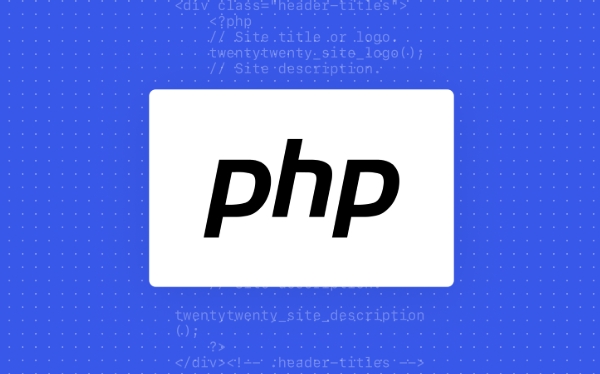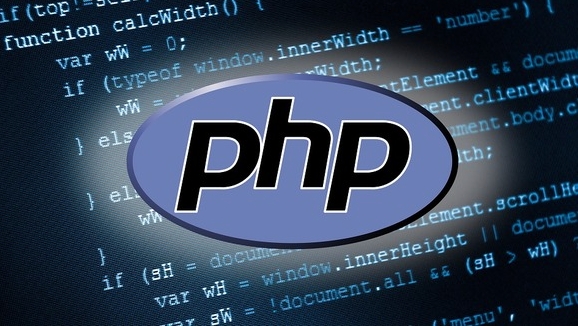There are the following methods for calling functions dynamically in PHP: 1. Use variable functions, assign the function name to the variable and then call it through $func(); 2. Dynamically call the instance method through object methods and -> operators, or call static methods through class names and :: operators; 3. Use call_user_func() and call_user_func_array() to flexibly pass parameters and execute them. When using it, you should pay attention to verifying whether the function exists, avoid directly using user input as function name to ensure safety, and language constructs such as echo cannot be used for variable functions. These methods are suitable for building plug-in systems, callback mechanisms, or writing flexible code logic.

In PHP, if you have a function name stored in a variable and want to call that function dynamically, it's totally doable. This technique is especially useful when working with callbacks, plugins, or dynamic dispatching logic.

Let's dive into the most common ways to achieve this.

Using Variable Functions
PHP supports variable functions , which means you can assign a function name as a string to a variable and then use that variable followed by parentsthes to call the function.
function saysHello() {
echo "Hello!";
}
$func = 'sayHello';
$func(); // Outputs: Hello! This works for both user-defined functions and built-in PHP functions (as long as they're not language constructs like echo , isset , etc.).

?? Make sure the function exists before calling it dynamically. You can use
function_exists()to check:if (function_exists($func)) { $func(); } else { echo "Function not found."; }
Calling Methods from Variables
If you're dealing with object-oriented code and want to call a method dynamically, you can store the method name in a variable and use the -> operator:
class Greeter {
public function greet() {
echo "Hi there!";
}
}
$obj = new Greeter();
$method = 'greet';
$obj->$method(); // Outputs: Hi there! For static methods, you can use the scope resolution operator ( :: ) with a variable class name:
class StaticGreeter {
public static function greet() {
echo "Static greeting!";
}
}
$class = 'StaticGreeter';
$class::greet(); // Outputs: Static greeting! Again, consider checking if the method exists using method_exists() to avoid runtime errors:
if (method_exists($obj, $method)) {
$obj->$method();
} Using call_user_func() and call_user_func_array()
Sometimes you might want more flexibility, especially when passing arguments. That's where call_user_func() and call_user_func_array() come in handy.
call_user_func() takes a callable and optional parameters:
function add($a, $b) {
return $a $b;
}
$func = 'add';
$result = call_user_func($func, 3, 5);
echo $result; // Outputs: 8 If you have an array of arguments, use call_user_func_array() :
$args = [3, 5]; $result = call_user_func_array($func, $args); echo $result; // Outputs: 8
These functions also work with methods:
// For object methods call_user_func([$obj, 'methodName'], $arg1, $arg2); // For static methods call_user_func(['ClassName', 'methodName'], $arg1, $arg2);
They're especially useful when you don't know how many arguments you'll need to pass ahead of time.
A Few Things to Watch Out For
- Avoid calling functions based on user input without sanitization — it's a security risk.
- Variable functions won't work with language constructs like
echo,print,unset(), etc. - Always validate that the function/method exists before calling it.
- If performance matters, direct calls are faster than using
call_user_func.
Basically that's it. Whether you're building a plugin system, implementing callbacks, or just writing flexible code, knowing how to dynamically call functions in PHP gives you a powerful tool.
The above is the detailed content of How to call a PHP function from a variable?. For more information, please follow other related articles on the PHP Chinese website!

Hot AI Tools

Undress AI Tool
Undress images for free

Undresser.AI Undress
AI-powered app for creating realistic nude photos

AI Clothes Remover
Online AI tool for removing clothes from photos.

Clothoff.io
AI clothes remover

Video Face Swap
Swap faces in any video effortlessly with our completely free AI face swap tool!

Hot Article

Hot Tools

Notepad++7.3.1
Easy-to-use and free code editor

SublimeText3 Chinese version
Chinese version, very easy to use

Zend Studio 13.0.1
Powerful PHP integrated development environment

Dreamweaver CS6
Visual web development tools

SublimeText3 Mac version
God-level code editing software (SublimeText3)
 PHP Variable Scope Explained
Jul 17, 2025 am 04:16 AM
PHP Variable Scope Explained
Jul 17, 2025 am 04:16 AM
Common problems and solutions for PHP variable scope include: 1. The global variable cannot be accessed within the function, and it needs to be passed in using the global keyword or parameter; 2. The static variable is declared with static, and it is only initialized once and the value is maintained between multiple calls; 3. Hyperglobal variables such as $_GET and $_POST can be used directly in any scope, but you need to pay attention to safe filtering; 4. Anonymous functions need to introduce parent scope variables through the use keyword, and when modifying external variables, you need to pass a reference. Mastering these rules can help avoid errors and improve code stability.
 How to handle File Uploads securely in PHP?
Jul 08, 2025 am 02:37 AM
How to handle File Uploads securely in PHP?
Jul 08, 2025 am 02:37 AM
To safely handle PHP file uploads, you need to verify the source and type, control the file name and path, set server restrictions, and process media files twice. 1. Verify the upload source to prevent CSRF through token and detect the real MIME type through finfo_file using whitelist control; 2. Rename the file to a random string and determine the extension to store it in a non-Web directory according to the detection type; 3. PHP configuration limits the upload size and temporary directory Nginx/Apache prohibits access to the upload directory; 4. The GD library resaves the pictures to clear potential malicious data.
 Commenting Out Code in PHP
Jul 18, 2025 am 04:57 AM
Commenting Out Code in PHP
Jul 18, 2025 am 04:57 AM
There are three common methods for PHP comment code: 1. Use // or # to block one line of code, and it is recommended to use //; 2. Use /.../ to wrap code blocks with multiple lines, which cannot be nested but can be crossed; 3. Combination skills comments such as using /if(){}/ to control logic blocks, or to improve efficiency with editor shortcut keys, you should pay attention to closing symbols and avoid nesting when using them.
 How Do Generators Work in PHP?
Jul 11, 2025 am 03:12 AM
How Do Generators Work in PHP?
Jul 11, 2025 am 03:12 AM
AgeneratorinPHPisamemory-efficientwaytoiterateoverlargedatasetsbyyieldingvaluesoneatatimeinsteadofreturningthemallatonce.1.Generatorsusetheyieldkeywordtoproducevaluesondemand,reducingmemoryusage.2.Theyareusefulforhandlingbigloops,readinglargefiles,or
 Tips for Writing PHP Comments
Jul 18, 2025 am 04:51 AM
Tips for Writing PHP Comments
Jul 18, 2025 am 04:51 AM
The key to writing PHP comments is to clarify the purpose and specifications. Comments should explain "why" rather than "what was done", avoiding redundancy or too simplicity. 1. Use a unified format, such as docblock (/*/) for class and method descriptions to improve readability and tool compatibility; 2. Emphasize the reasons behind the logic, such as why JS jumps need to be output manually; 3. Add an overview description before complex code, describe the process in steps, and help understand the overall idea; 4. Use TODO and FIXME rationally to mark to-do items and problems to facilitate subsequent tracking and collaboration. Good annotations can reduce communication costs and improve code maintenance efficiency.
 How to access a character in a string by index in PHP
Jul 12, 2025 am 03:15 AM
How to access a character in a string by index in PHP
Jul 12, 2025 am 03:15 AM
In PHP, you can use square brackets or curly braces to obtain string specific index characters, but square brackets are recommended; the index starts from 0, and the access outside the range returns a null value and cannot be assigned a value; mb_substr is required to handle multi-byte characters. For example: $str="hello";echo$str[0]; output h; and Chinese characters such as mb_substr($str,1,1) need to obtain the correct result; in actual applications, the length of the string should be checked before looping, dynamic strings need to be verified for validity, and multilingual projects recommend using multi-byte security functions uniformly.
 Quick PHP Installation Tutorial
Jul 18, 2025 am 04:52 AM
Quick PHP Installation Tutorial
Jul 18, 2025 am 04:52 AM
ToinstallPHPquickly,useXAMPPonWindowsorHomebrewonmacOS.1.OnWindows,downloadandinstallXAMPP,selectcomponents,startApache,andplacefilesinhtdocs.2.Alternatively,manuallyinstallPHPfromphp.netandsetupaserverlikeApache.3.OnmacOS,installHomebrew,thenrun'bre
 Learning PHP: A Beginner's Guide
Jul 18, 2025 am 04:54 AM
Learning PHP: A Beginner's Guide
Jul 18, 2025 am 04:54 AM
TolearnPHPeffectively,startbysettingupalocalserverenvironmentusingtoolslikeXAMPPandacodeeditorlikeVSCode.1)InstallXAMPPforApache,MySQL,andPHP.2)Useacodeeditorforsyntaxsupport.3)TestyoursetupwithasimplePHPfile.Next,learnPHPbasicsincludingvariables,ech






